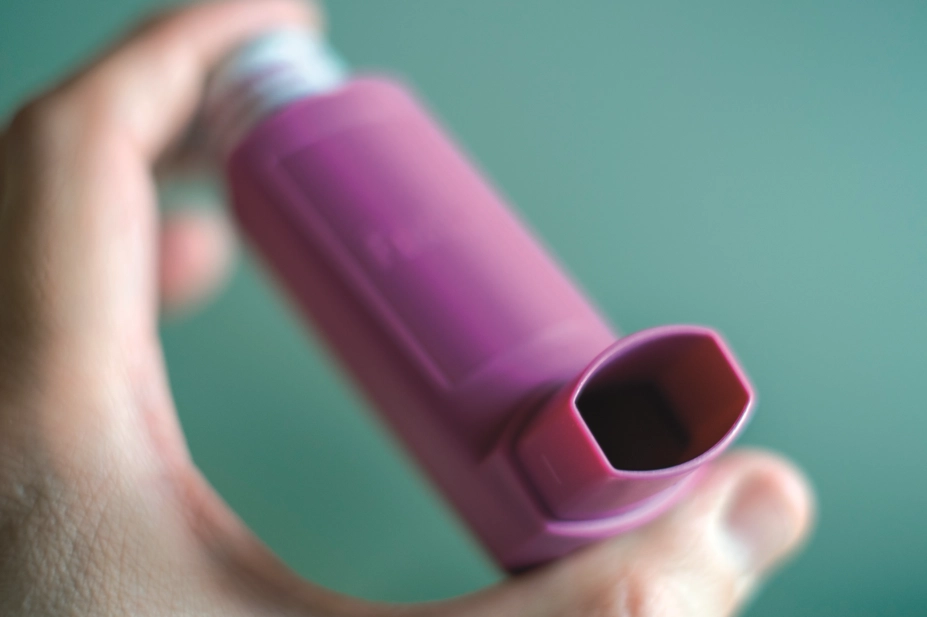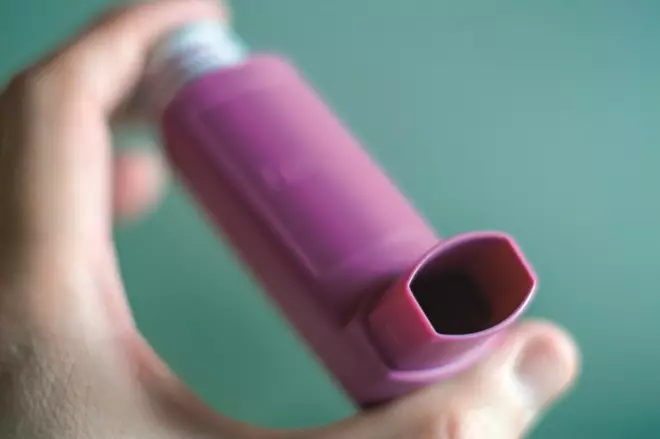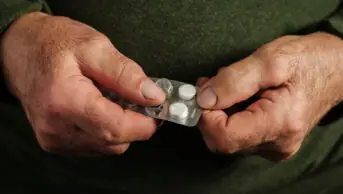
Shutterstock.com
Open access article
The Royal Pharmaceutical Society has made this article free to access in order to help healthcare professionals stay informed about an issue of national importance.
To learn more about coronavirus, please visit: https://www.rpharms.com/resources/pharmacy-guides/wuhan-novel-coronavirus

Source: Shutterstock.com
Pharmacists have said that they are experiencing a “loo-roll situation,” with panicked patients ordering inhalers they do not immediately need
Pharmacies are experiencing difficulties sourcing some commonly used asthma inhalers, following a surge in demand caused by the COVID-19 pandemic, The Pharmaceutical Journal can reveal.
In a statement, the Department of Health and Social Care (DHSC) told The Pharmaceutical Journal that there were delays in replenishment of stocks to wholesalers, although suppliers were continuing to make stock available.
The statement comes as some wholesalers reported that several inhalers are out of stock, including four strengths of Chiesi’s Clenil Modulite (beclometasone dipropionate) inhalers and three strengths of its Fostair (beclometasone dipropionate and formoterol fumarate dihydrate) inhaler product.
Some 9.3 million of these Clenil and Fostair inhalers were prescribed in 2018.
Pharmacists said there was a “loo-roll situation,” with panicked patients ordering inhalers they did not immediately need.
A spokesperson for the DHSC said manufacturers of inhalers are experiencing a significant increase in demand for their products “which is linked to the outbreak of COVID-19 in the UK”.
They added that it was “working with suppliers to ensure supplies continue to remain available” and that “healthcare professionals and patients are reminded to only prescribe and order what they need during this time, to ensure that all patients can continue to access their medicines.”
Chiesi confirmed in a statement on its website in March 2020 that it is experiencing a supply issue with its Clenil Modulite 100 microgram pressurised metered dose inhalers “as a result of a delay in component material supply”.
It added that “significant demand in the supply chain” for all Chiesi respiratory products has caused wholesalers to go out-of-stock on many lines.
The wholesaler AAH Pharmaceuticals placed 11 inhalers on its “out of stock” list on the 30 March 2020, with little guidance on when supplies would return.
Anna Murphy, consultant respiratory pharmacist at University Hospitals of Leicester NHS Trust, said the demand was caused by panic from some patients who have not used their inhalers in years, causing a “loo-roll situation” in response to the COVID-19 outbreak.
Some companies “have very little leeway if patients are switched from one inhaler to another,” she said, although other companies “had huge stocks because of Brexit, so that has been helpful to them in managing the demand”.
Darush Attar-Zadeh, a respiratory lead pharmacist at NHS Barnet Clinical Commissioning Group, confirmed that he is also seeing shortages of salbutamol, from some companies, in addition to the Clenil inhaler shortages.
“My concern is that there may be even more overuse of reliever treatments in asthma that can make symptoms worse, and underuse of inhaled preventer treatment, exacerbated possibly by stock issues — there’s a lot of panic out there,” he said.
To mitigate shortages, the DHSC said NHS England wrote to healthcare professionals working in primary care on 31 March 2020, asking them not to overprescribe or over-order during this time, as this will create further pressures on the supply chain.
The British Thoracic Society also advised prescribers, in guidance published on 1 April 2020, that they “discuss with those patients who have not ordered a repeat prescription for an inhaler for more than four months if this is still clinically required”.
The advice also recommends prescribers “avoid switching between different types of inhalers unless essential to ensure continuity of patient treatment”.
“If an alternative inhaler is required … ensure patients are switched to alternative class of inhaler device (i.e aerosol (e.g [metered-dose inhalers], Easibreathe, Autohaler) or dry-powder inhalers),” it continued.
The Pharmaceutical Journal has approached AAH Pharmaceuticals for comment.


